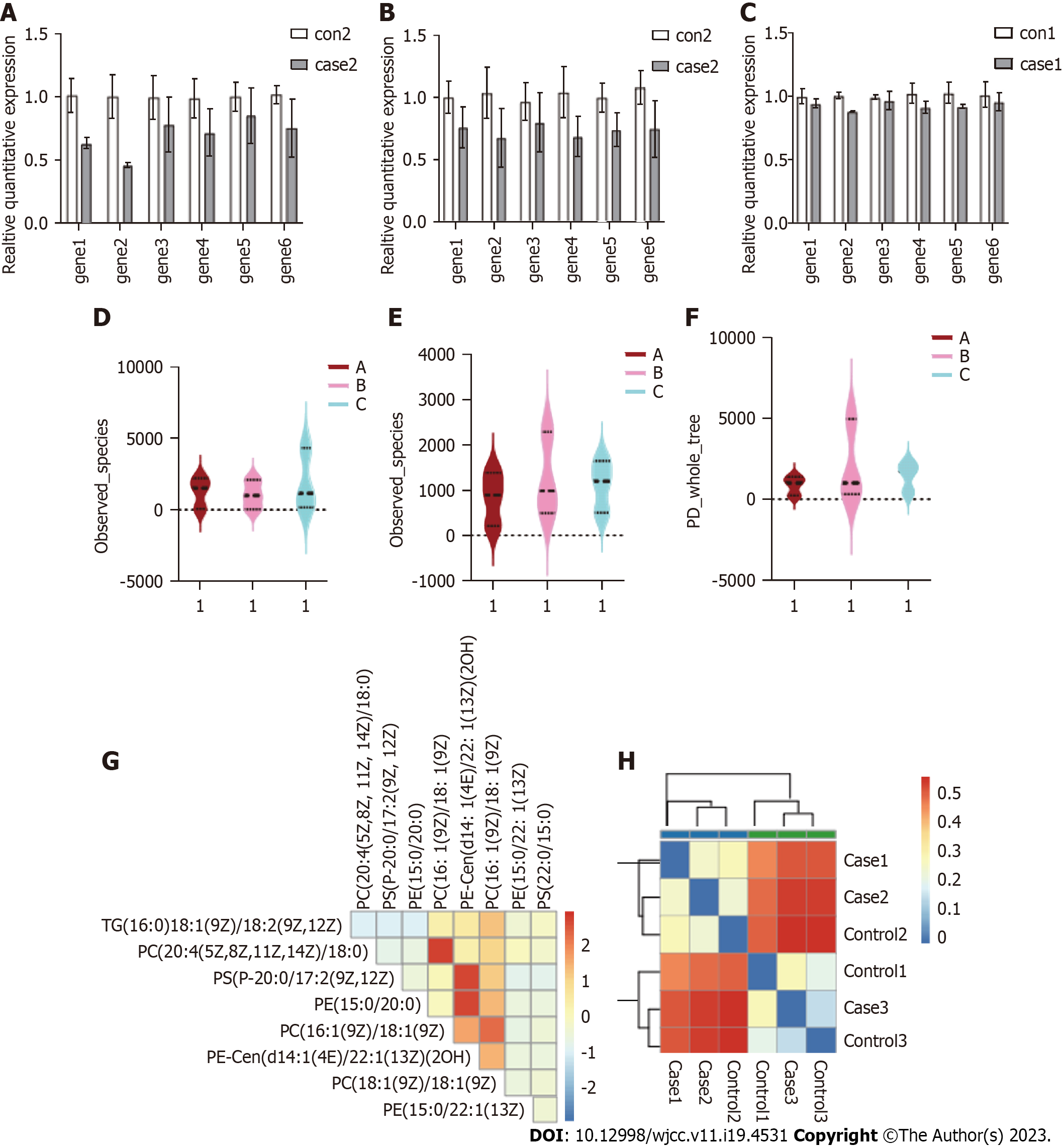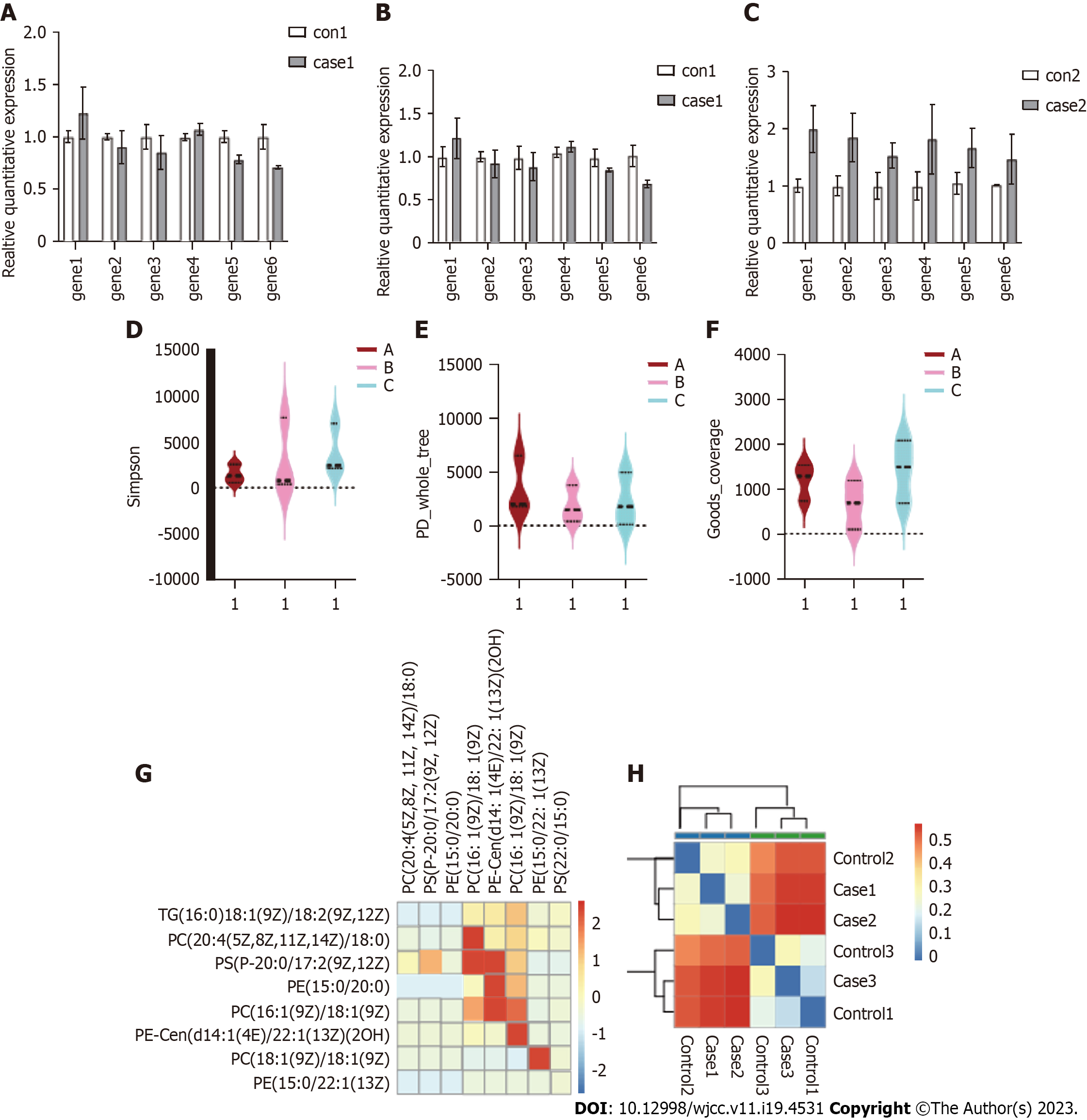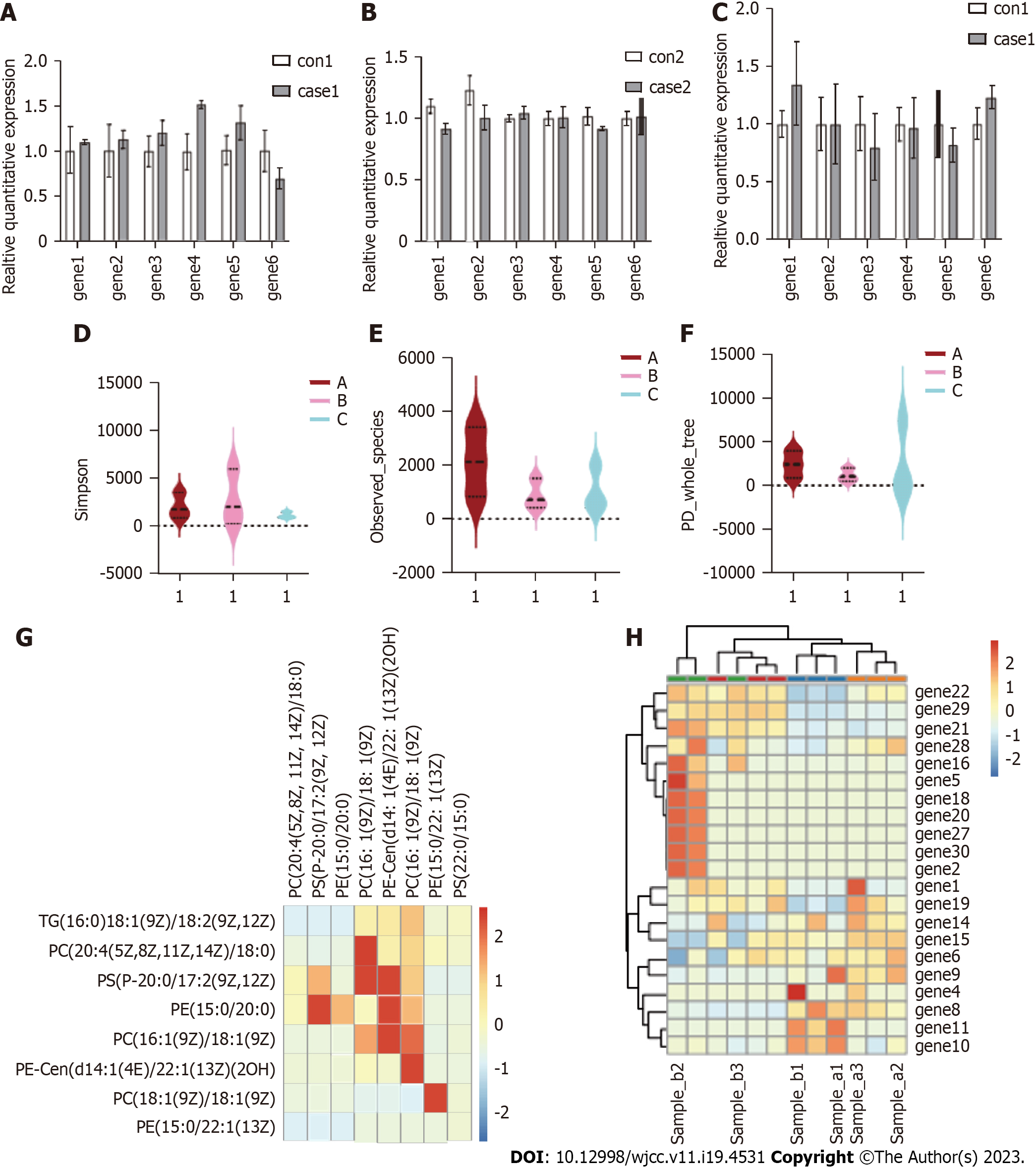©The Author(s) 2023.
World J Clin Cases. Jul 6, 2023; 11(19): 4531-4543
Published online Jul 6, 2023. doi: 10.12998/wjcc.v11.i19.4531
Published online Jul 6, 2023. doi: 10.12998/wjcc.v11.i19.4531
Figure 1 Technical roadmap.
FMA: Function assessment scale.
Figure 2 Comparison of general data between the two groups.
A-C: Age data for two groups of patients; D-F: Two groups of patients with general data α diversity analysis; G-H: Data cluster analysis heat map between two groups of patients.
Figure 3 Comparison of function assessment scale values between the two groups before and after training.
A-C: Two groups of patients with general data comparison; D-F: Two groups of patients before and after training function assessment scale value α diversity analysis; G-H: Data cluster analysis heat map between two groups of patients.
Figure 4 Comparison of maximum voluntary contract values between the two groups before and after training.
A-C: Two groups of patients with general data comparison; D-F: Two groups of patients before and after training maximum voluntary contract value α diversity analysis; G-H: Data cluster analysis heat map between two groups of patients.
Figure 5 Comparison of integrated electromyography values between the two groups before and after training.
A-C: Two groups of patients with general data comparison; D-F: Two groups of patients before and after training integrated electromyography value α diversity analysis; G-H: Data cluster analysis heat map between two groups of patients.
- Citation: Lu YH, Fu Y, Shu J, Yan LY, Shen HJ. Application of cross-migration theory in limb rehabilitation of stroke patients with hemiplegia. World J Clin Cases 2023; 11(19): 4531-4543
- URL: https://www.wjgnet.com/2307-8960/full/v11/i19/4531.htm
- DOI: https://dx.doi.org/10.12998/wjcc.v11.i19.4531

















